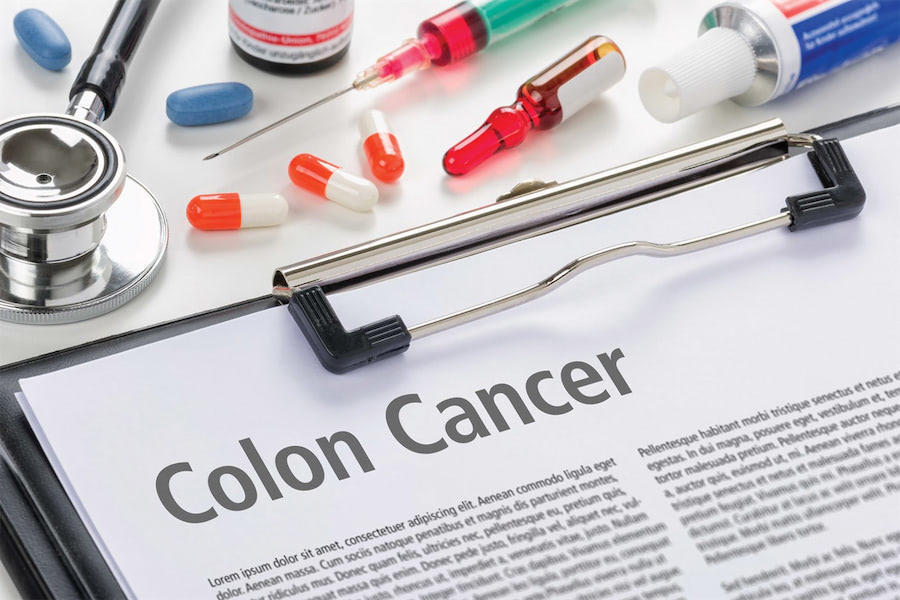
Colon cancer, originating in the colon or rectum, is a result of uncontrolled cell growth. It's the third most commonly diagnosed cancer worldwide, making early detection and understanding of its etiology crucial. In this document, we will provide a brief overview of colon cancer biology, its progression, and risk factors.
Understanding the biology of colon cancer is essential in comprehending its progression and potential treatment options. Colon cancer begins with a mutation in the DNA of cells lining the colon or rectum, causing them to grow uncontrollably. This mutation can be inherited from parents or acquired through environmental factors such as smoking, diet, and physical activity.
The Genetic Landscape: How Genetics Influences Colon Cancer Risk
Genetic mutations play a significant role in colon cancer development. Some mutations are inherited, while others occur randomly. The interplay between genetics and environment defines one's risk. For example, individuals with a family history of colon cancer have a higher likelihood of developing the disease despite having no other risk factors. In contrast, those with unhealthy lifestyle habits may be more susceptible to genetic mutations that can lead to colon cancer.
Tests for Identifying Genetic Predisposition to Colon Cancer
Genetic testing, like the DNA microarray test, can detect inherited mutations linked to colon cancer. Carrying such mutations doesn't guarantee cancer but indicates a higher risk. Based on the results, patients can take proactive measures to reduce their risk. Maintaining a healthy lifestyle, undergoing regular screenings and follow-ups, or even preventive surgery may be recommended.
Importance of Family History in Assessing Colon Cancer Risk
A family history of colon cancer can suggest an inherited mutation. Regular screenings are advised for individuals with a family history, even if no symptoms are present. Additionally, genetic counseling and testing may be recommended to assess the risk level accurately. Understanding one's family history can also help identify other relatives who may be at increased risk and prompt them to seek medical attention.
The Role of Lifestyle in Colon Cancer Development
Although genetics plays a significant role in colon cancer development, lifestyle factors such as diet, exercise, and smoking are equally crucial. Consuming a diet high in red and processed meats, low in fruits and vegetables, and lacking fiber can increase the risk of colon cancer. In contrast, regular physical activity can lower one's chances of developing the disease.
Gene Mutations Associated with Colon Cancer: Key Players in Diagnosis
Mutations in genes like APC, MLH1, and MSH2 have been linked to an increased risk of colon cancer. Identifying these mutations aids in early diagnosis and targeted therapies. Additionally, understanding the specific genetic profile of colon cancer can help determine treatment options and potential response to therapy.
Predictive Genetic Testing for Colon Cancer: Pros, Cons, and Reliability
While these tests provide invaluable insights into one's risk, they also come with ethical considerations. Some individuals might struggle with knowing their predisposition and the anxiety it can cause. Moreover, the results may not always be reliable, leading to unnecessary interventions or false reassurances. It's essential to discuss potential risks and benefits with a healthcare provider before undergoing genetic testing.
Navigating the Future: How Genetic Information Shapes Colon Cancer Treatment
Personalized medicine, based on an individual's genetic makeup, promises more effective treatments with fewer side effects. Colon cancer patients can benefit immensely from such tailored approaches. Genetic testing also aids in identifying individuals who are at a higher risk of recurrence and may require more aggressive treatment. As research continues to unravel the complexities of colon cancer genetics, personalized treatments will become more prevalent.
Life Choices: Can Lifestyle Overcome Genetic Risk Factors for Colon Cancer?
While genetics play a role, lifestyle factors like diet, exercise, and avoiding carcinogens can influence outcomes. A balanced lifestyle can reduce risk even in those genetically predisposed. Regular screenings, early detection, and treatment, along with a healthy lifestyle, can prevent colon cancer or catch it in its early stages when it is most treatable.
The Path Forward: Early Detection and Preventive Measures in Colon Cancer
Combining genetic testing with regular screenings can lead to early detection, improving survival rates. Embracing preventive measures further reduces risk, ensuring a holistic approach to battling colon cancer. Understanding the role of genetics and lifestyle in colon cancer development can empower individuals to take control of their health and make informed choices for prevention and treatment. As research progresses, more effective methods for early detection and targeted therapies will emerge, creating a brighter future in the fight against colon cancer.
